2025 Physician Workforce Study
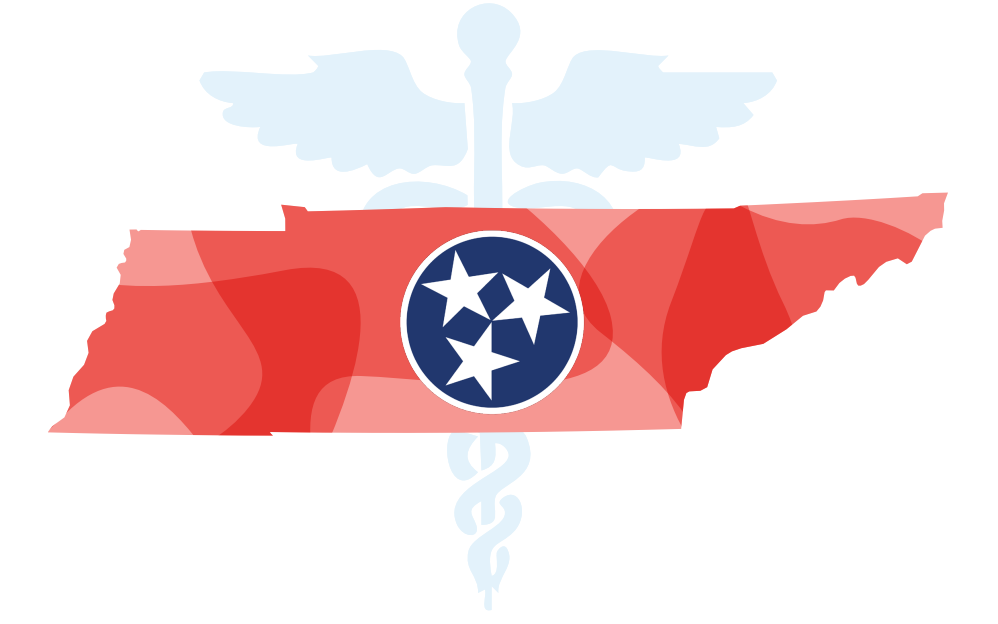 Physician Workforce Study Published by the Tennessee Hospital Association
Physician Workforce Study Published by the Tennessee Hospital Association
The Tennessee Hospital Association’s Physician Workforce Landscape report offers a detailed look at the state’s physician supply, current and projected demand, and the capacity of medical education programs through 2035. It finds that Tennessee is facing a significant physician shortage, with the number of practicing doctors about 13 % below the national per-capita average.
The report also highlights a widening gap between the number of medical school graduates and available residency training slots in the state, a trend projected to grow over the next decade. To address these challenges, the study outlines potential strategies for strengthening the physician pipeline and supporting recruitment and retention efforts across specialties and geographic areas. The report is part of THA’s broader workforce research aimed at supporting hospitals’ workforce planning and advocacy as Tennessee’s population continues to grow and age.


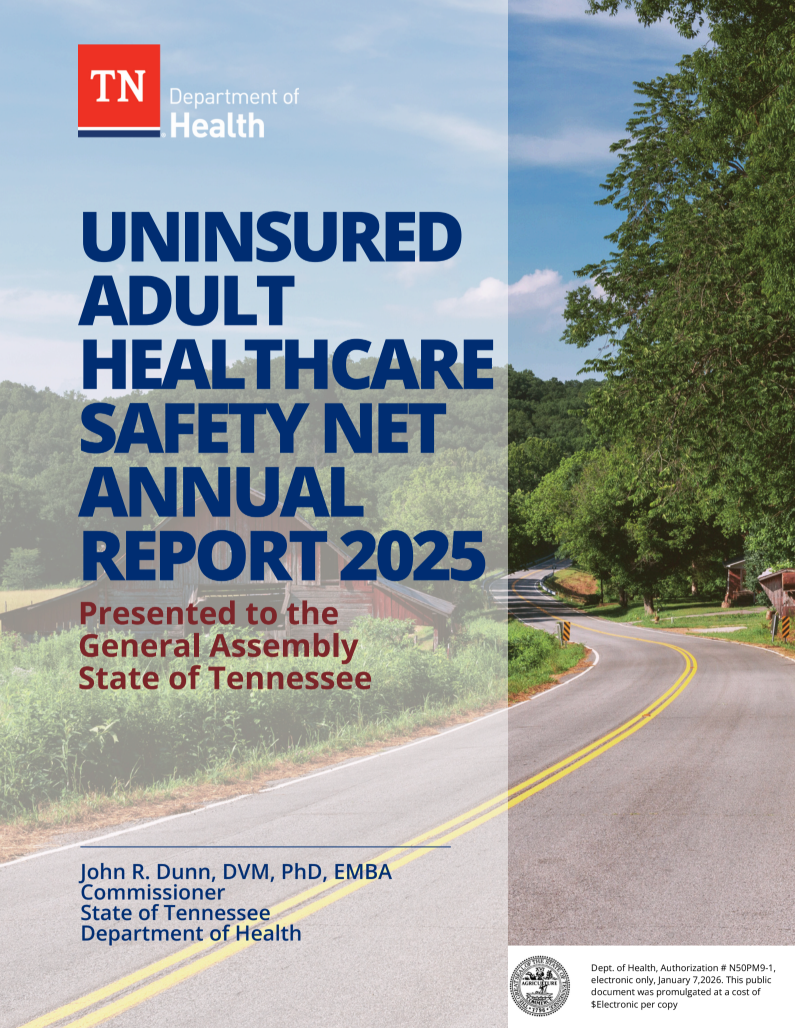 Uninsured Adult Healthcare Safety Net Annual Report
Uninsured Adult Healthcare Safety Net Annual Report Join us for a valuable
Join us for a valuable 
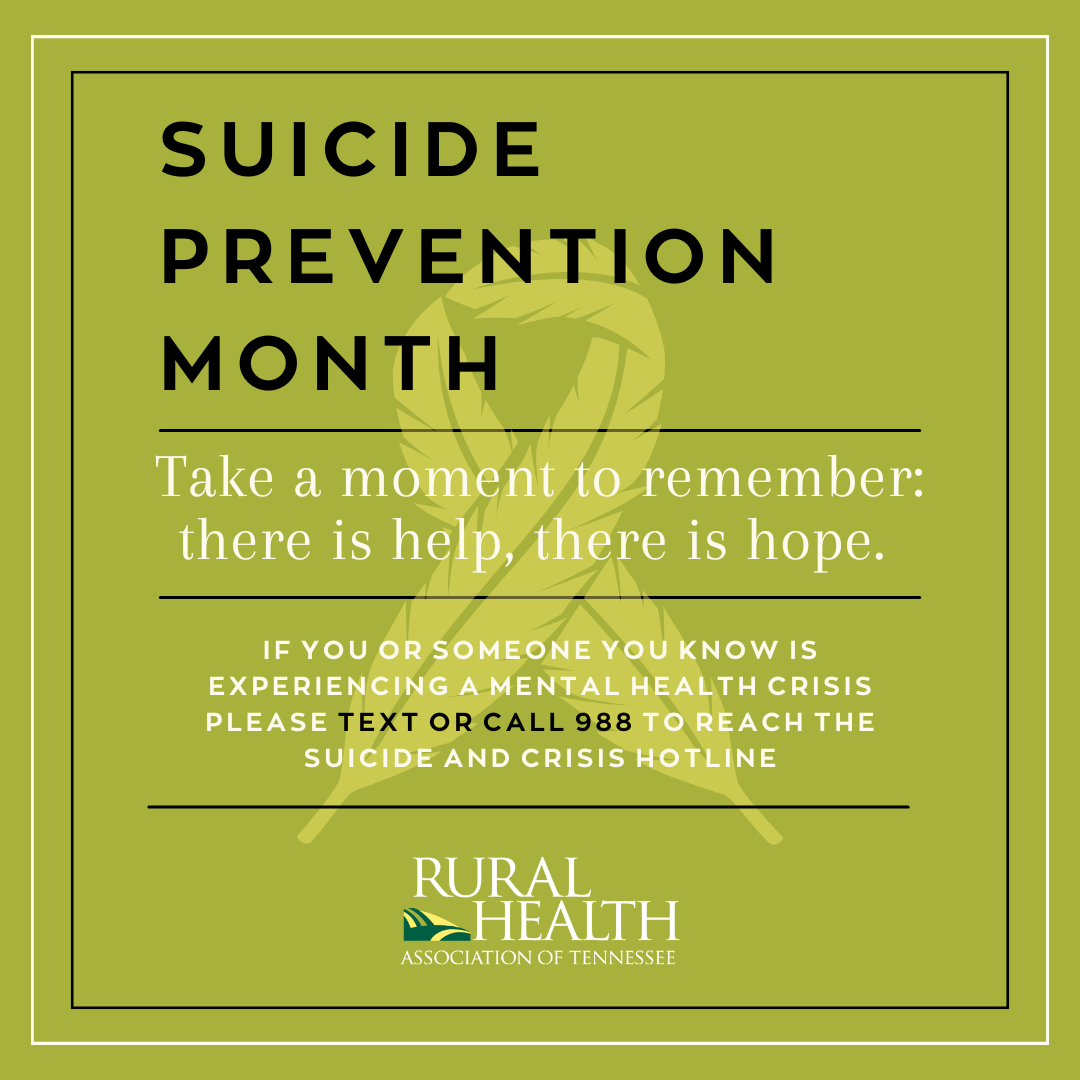 Suicide Prevention Month, observed every September, is a crucial time dedicated to raising awareness about mental health struggles and preventing suicide. This month brings attention to the profound impact that suicide has on individuals, families, and communities. By shedding light on mental health issues and promoting open discussions, Suicide Prevention Month seeks to remove the stigma surrounding mental health and encourage those in need to seek help. Public health organizations, mental health professionals, and advocates come together to offer resources, support, and education during this time, emphasizing that mental health is just as important as physical health.
Suicide Prevention Month, observed every September, is a crucial time dedicated to raising awareness about mental health struggles and preventing suicide. This month brings attention to the profound impact that suicide has on individuals, families, and communities. By shedding light on mental health issues and promoting open discussions, Suicide Prevention Month seeks to remove the stigma surrounding mental health and encourage those in need to seek help. Public health organizations, mental health professionals, and advocates come together to offer resources, support, and education during this time, emphasizing that mental health is just as important as physical health. National Recovery Month, observed every September, is a time dedicated to promoting awareness and understanding of mental health and substance use disorders, celebrating individuals in recovery, and recognizing the work of professionals in the field. The month serves as a beacon of hope for millions, demonstrating that recovery is possible for everyone. It highlights the importance of community involvement, resilience, and support systems in helping people achieve long-term recovery from addiction and mental health challenges. By fostering open conversations and reducing stigma, National Recovery Month helps create an environment where individuals feel encouraged to seek help without judgment.
National Recovery Month, observed every September, is a time dedicated to promoting awareness and understanding of mental health and substance use disorders, celebrating individuals in recovery, and recognizing the work of professionals in the field. The month serves as a beacon of hope for millions, demonstrating that recovery is possible for everyone. It highlights the importance of community involvement, resilience, and support systems in helping people achieve long-term recovery from addiction and mental health challenges. By fostering open conversations and reducing stigma, National Recovery Month helps create an environment where individuals feel encouraged to seek help without judgment. Join us for an engaging conversation on how rural communities can lead the way in promoting recovery and resilience. Our panelists will share inspiring stories of progress, discuss barriers hindering recovery readiness, and outline essential steps to create inclusive environments where everyone can flourish in their recovery journey.
Join us for an engaging conversation on how rural communities can lead the way in promoting recovery and resilience. Our panelists will share inspiring stories of progress, discuss barriers hindering recovery readiness, and outline essential steps to create inclusive environments where everyone can flourish in their recovery journey. Join us for the August Rural Health Clinic (RHC) Lunch and Learn!
Join us for the August Rural Health Clinic (RHC) Lunch and Learn! Children's Eye Health and Safety Month, observed every August, is dedicated to raising awareness about the critical role eye health plays in children's overall well-being and development. This initiative aims to educate parents, caregivers, and educators about the importance of regular eye exams and protective measures to ensure children have healthy vision. Early detection and treatment of eye conditions can prevent long-term vision problems and support academic and social success. By emphasizing eye health, this month-long campaign helps to establish lifelong habits that contribute to good vision and eye safety.
Children's Eye Health and Safety Month, observed every August, is dedicated to raising awareness about the critical role eye health plays in children's overall well-being and development. This initiative aims to educate parents, caregivers, and educators about the importance of regular eye exams and protective measures to ensure children have healthy vision. Early detection and treatment of eye conditions can prevent long-term vision problems and support academic and social success. By emphasizing eye health, this month-long campaign helps to establish lifelong habits that contribute to good vision and eye safety.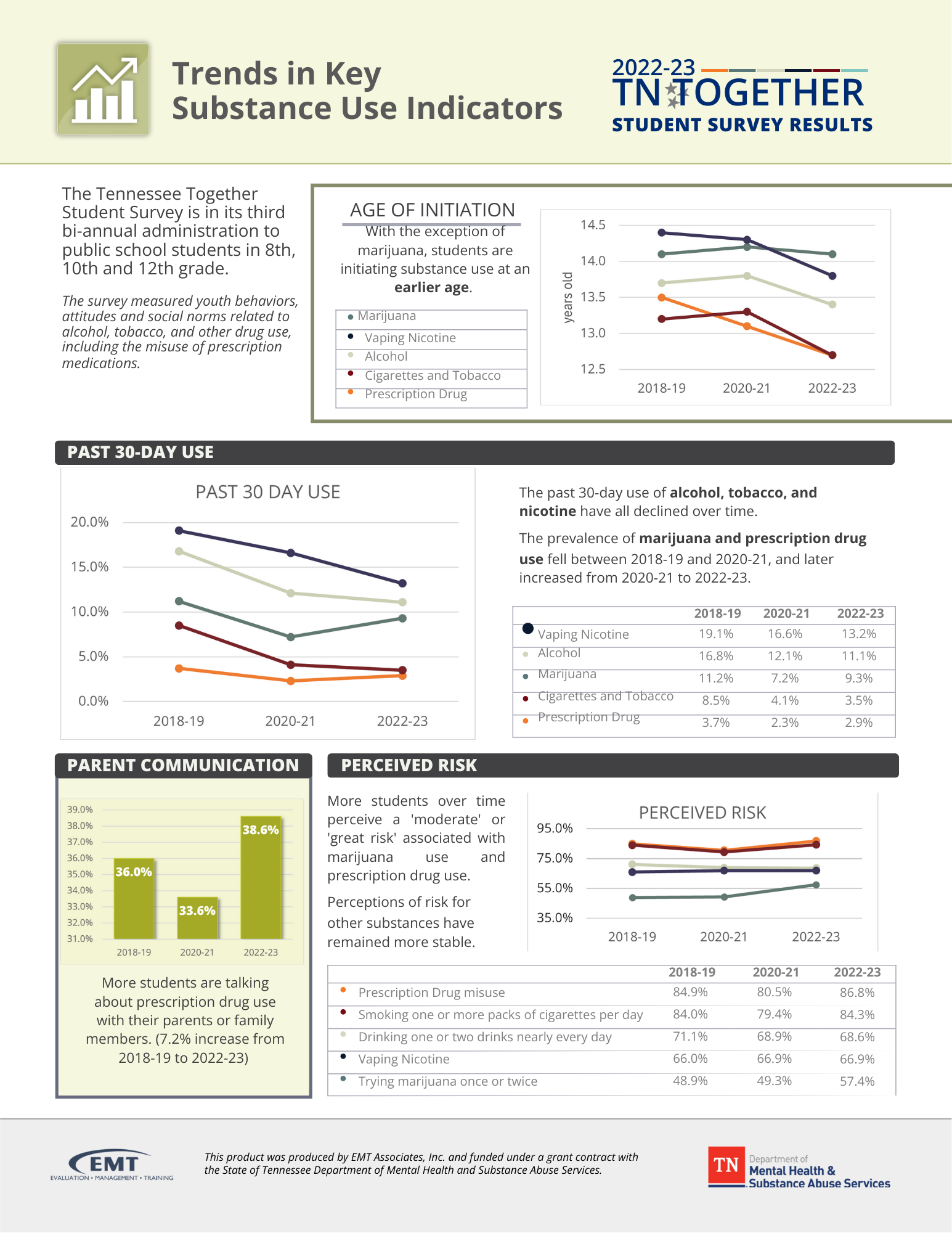 The Tennessee Together Student Survey captures data on youth behaviors, attitudes, and social norms related to substance misuse, emotional wellness, and other risk behaviors among Tennessee 8
The Tennessee Together Student Survey captures data on youth behaviors, attitudes, and social norms related to substance misuse, emotional wellness, and other risk behaviors among Tennessee 8 Juvenile Arthritis (JA) refers to a range of autoimmune and inflammatory conditions that can affect children under the age of 16. These diseases cause joint pain, swelling, and stiffness, and can impact a child’s growth and overall development. Unlike adult arthritis, which is often associated with wear and tear of the joints, JA is primarily an autoimmune condition where the body's immune system mistakenly attacks its own tissues. There are several types of juvenile arthritis, including juvenile idiopathic arthritis (JIA), juvenile dermatomyositis, juvenile lupus, and juvenile scleroderma, among others.
Juvenile Arthritis (JA) refers to a range of autoimmune and inflammatory conditions that can affect children under the age of 16. These diseases cause joint pain, swelling, and stiffness, and can impact a child’s growth and overall development. Unlike adult arthritis, which is often associated with wear and tear of the joints, JA is primarily an autoimmune condition where the body's immune system mistakenly attacks its own tissues. There are several types of juvenile arthritis, including juvenile idiopathic arthritis (JIA), juvenile dermatomyositis, juvenile lupus, and juvenile scleroderma, among others. Men's Health Month, observed every June, plays a crucial role in raising awareness about health issues affecting men and boys. This dedicated month serves as a pivotal time to encourage early detection and treatment of diseases more prevalent among men, such as heart disease, cancer, and mental health disorders. The aim is to foster health consciousness and encourage men to adopt healthier lifestyles. By focusing on preventive care and regular check-ups, Men’s Health Month seeks to reduce the gap in health outcomes between genders, given that men, statistically, are less likely to seek medical attention and more likely to suffer from serious health conditions at younger ages.
Men's Health Month, observed every June, plays a crucial role in raising awareness about health issues affecting men and boys. This dedicated month serves as a pivotal time to encourage early detection and treatment of diseases more prevalent among men, such as heart disease, cancer, and mental health disorders. The aim is to foster health consciousness and encourage men to adopt healthier lifestyles. By focusing on preventive care and regular check-ups, Men’s Health Month seeks to reduce the gap in health outcomes between genders, given that men, statistically, are less likely to seek medical attention and more likely to suffer from serious health conditions at younger ages. Skin Cancer Awareness Month, observed each May, is a crucial campaign aimed at educating the public about the dangers of skin cancer, the most common form of cancer in the United States. This month-long initiative is spearheaded by organizations such as the
Skin Cancer Awareness Month, observed each May, is a crucial campaign aimed at educating the public about the dangers of skin cancer, the most common form of cancer in the United States. This month-long initiative is spearheaded by organizations such as the  National Women's Health Week, observed annually in May, serves as a crucial reminder of the significance of women's well-being. It's a dedicated time for women of all ages to prioritize their health by scheduling check-ups, screenings, and engaging in healthy habits. This initiative aims to empower women to take control of their health, encouraging them to make informed decisions about their bodies and lifestyles.
National Women's Health Week, observed annually in May, serves as a crucial reminder of the significance of women's well-being. It's a dedicated time for women of all ages to prioritize their health by scheduling check-ups, screenings, and engaging in healthy habits. This initiative aims to empower women to take control of their health, encouraging them to make informed decisions about their bodies and lifestyles.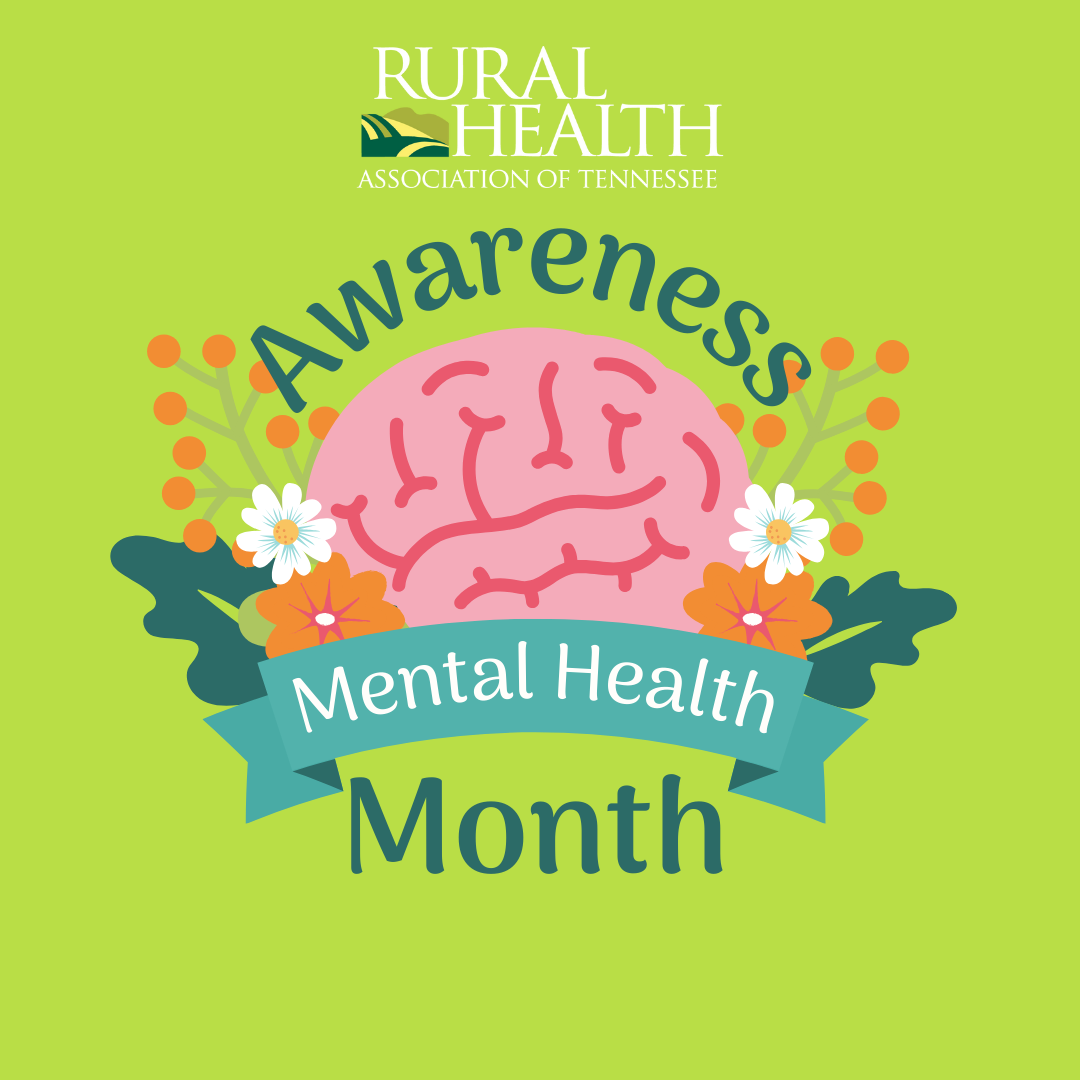 Mental Health Awareness Month, observed throughout May, serves as a crucial platform to educate, raise awareness, and reduce stigma surrounding mental health issues. It offers an opportunity for individuals, communities, and organizations to come together to promote understanding and support for those struggling with mental health challenges.
Mental Health Awareness Month, observed throughout May, serves as a crucial platform to educate, raise awareness, and reduce stigma surrounding mental health issues. It offers an opportunity for individuals, communities, and organizations to come together to promote understanding and support for those struggling with mental health challenges.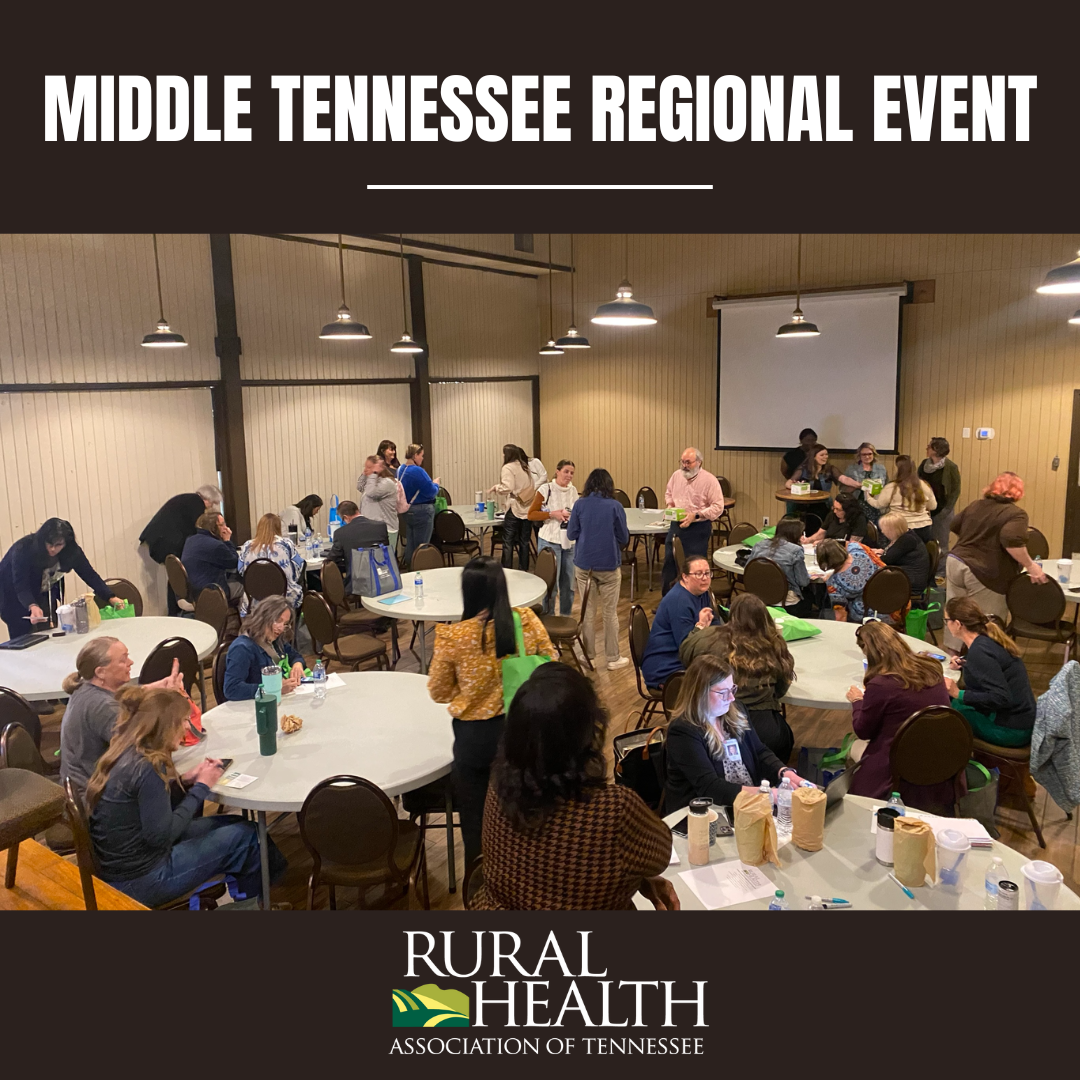 Tuesday, April 23rd, we had the opportunity to host our last regional event of the season at Fall Creek Falls State Park and see our middle region members. Members had the opportunity to h
Tuesday, April 23rd, we had the opportunity to host our last regional event of the season at Fall Creek Falls State Park and see our middle region members. Members had the opportunity to h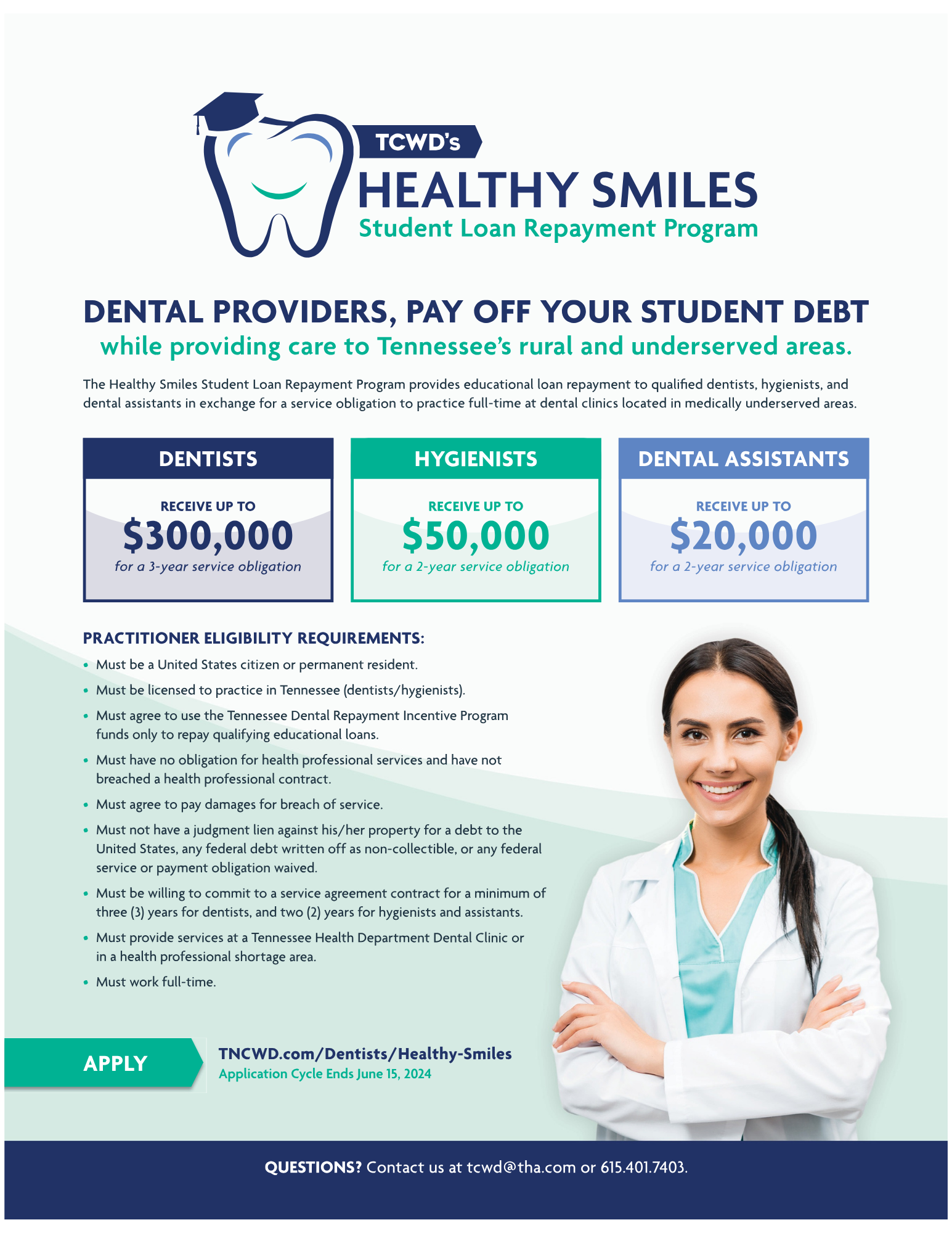 The Healthy Smiles Student Loan Repayment Program provides educational loan repayment to qualified dentists, hygienists, and dental assistants in exchange for a service obligation to practice full-time at dental clinics located in medically underserved areas.
The Healthy Smiles Student Loan Repayment Program provides educational loan repayment to qualified dentists, hygienists, and dental assistants in exchange for a service obligation to practice full-time at dental clinics located in medically underserved areas.